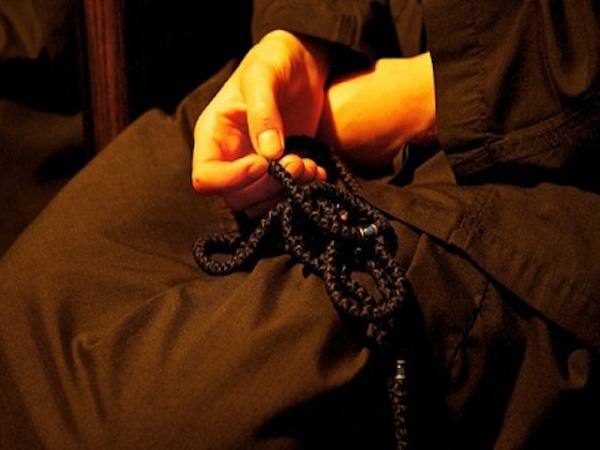True Fasting
4 March 2020‘Indeed, I tell you, they have their reward’.
Whatever we gain and achieve in virtue and our moral perfection is an inviolable treasure and, moreover, one that’s personal, inalienable. It’s not ‘about us’, it’s ‘us’, not even the body and senses, but our soul, our inner spiritual worth, our existence. Since the struggle we’re engaged in is to live in a spiritual manner, we ought to do so properly. For example, the Lord says that if we’re to benefit from the fast, we have to keep it in the right way, because those who fast in the wrong way ‘have their reward’ (Matth. 6, 16). Today, at the gates of Great Lent, we’d like to indicate certain conditions which prevent fasting from bearing fruit and which deprive us of our spiritual reward.

Necessary conditions for fasting
In the very first place, there’s a misconception about the institution of fasting. Fasting isn’t merely abstention from certain foods, it’s also humility, repentance and inner contrition. It’s not only bodily cleansing through a sparing diet, but also internal spiritual renewal. Of course, God’s first commandment was that of fasting, from a particular food, and breaking it was what caused our expulsion from Paradise. Moses, the Lord, Paul and the saints of the Church all fasted. Fasting is the means not the purpose. The aim is restraint and our spiritual growth, not self-justification. Many believe it’s the prime virtue, though others consider it to be a badly-understood institution which serves no purpose today. Indeed, there are many who mock and ridicule it. Fasting can’t be equated with dieting; they’re two different things.
We have to fast with good intent and out of love for God, not ‘to show others’ that we’re fasting’ (ibid.). Saint John Chrysostom writes that we often surpass the hypocrites themselves. He says that he knows people, many of whom don’t fast, and others who make a great show of fasting. He also knows people who don’t fast themselves, but ‘wear the mask of fasters’. There are others who are even more bizarre: they themselves don’t fast, but lecture others on how to do so. Looking good in the eyes of other people has no place in fasting. We fast in order to share in the sufferings of Christ. Fasting also helps us in our struggle against sin and the devil. Though demonic energy is as fierce as ever during the time of the fast, as Saint Basil the Great says: ‘the angel guardians of our life are even more diligent over their charges who are cleansing their soul with fasting’. He adds that the angels record all those who fast ‘in each Church’. Through fasting, we attract the grace and protection of God. The demon race continues to test us and is not expelled ‘except in prayer and fasting’ (Matth, 17, 21).
Fasting is necessary
Now that the arena of the fast is opening and our minds are turned to Easter, we’re called upon to fast bodily and in the spirit. Saint Basil writes: ‘Loose every bond of injustice’ [Cf. Is. 58, 3-8, esp. 6-7 WJL]. Fasting is the tithe of the year which we owe to God. Restriction of sleep, nourishment and expressions of feeling, brings contrition to the heart and makes us mourn over our sins. Our living contact with God is comfort for those who mourn. Over the days of the fast, it’s likely that we’ll encounter a variety of impediments to putting this spiritual effort into practice, for example recriminations with those around us, resentment on the part of other people and sheer badness. The days of the fast are tarnished with our passions. We shouldn’t be put off. Let’s love the fast and abstemiousness, so that we have God’s blessing and pass through the time of Lent with peace.






